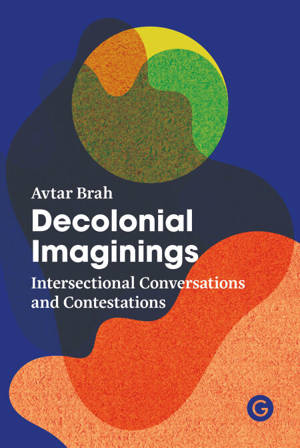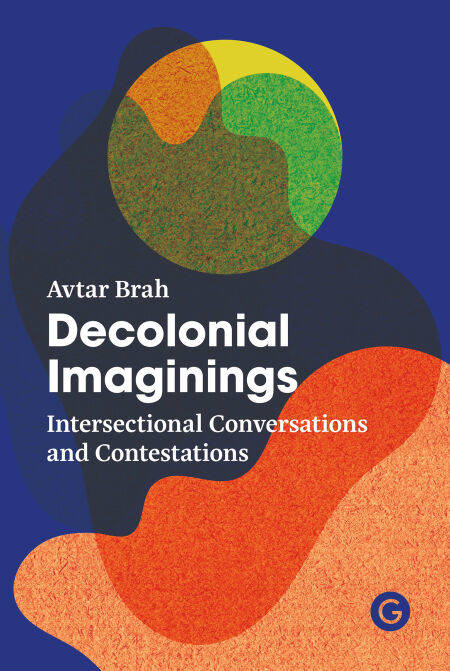
- Afhalen na 1 uur in een winkel met voorraad
- Gratis thuislevering in België vanaf € 30
- Ruim aanbod met 7 miljoen producten
- Afhalen na 1 uur in een winkel met voorraad
- Gratis thuislevering in België vanaf € 30
- Ruim aanbod met 7 miljoen producten
Zoeken
Decolonial Imaginings E-BOOK
Intersectional Conversations and Contestations
Avtar Brah
E-book | Engels
€ 29,56
+ 29 punten
Omschrijving
A transdisciplinary study of the ways in which mobilities assume social forms and result in multiple belongings.
In Decolonial Imaginings, Avtar Brah offers a transdisciplinary study of the ways in which mobilities assume social forms and result in multiple belongings. Situated within the confluence of decolonial feminist theory, border theory, and diaspora studies, the book explores borders and boundaries and how politics of connectivity are produced in and through struggles over “difference.” Brah examines multiple formations of power embedded in the intersections between gender, race, class, ethnicity, and sexuality. She analyzes this intersectionality in relation to diaspora; theorizes the relationship between diaspora, law, and literature; and between affect, memory, and cultural politics.
Discussing the crossings of impervious borders, Brah foregrounds the economies of abandonment, particularly the plight of people in boats in the Mediterranean, a number of whom perished because of a catalogue of failures by NATO warships and European coast guards. She revisits Gilles Deleuze and Felix Guattari’s notion of “nomad thought” and Braidotti’s feminist reworking of it, and it seeks to assess this framework’s value today. She analyzes the politics of “Black” in Britain with a focus on feminism constituted by women of African Caribbean and South Asian background, explores stereotypic representation of Muslim women in the context of Islamophobia and anti-Muslim racism, and considers the complexities of the #MeToo movement and how whiteness is configured in these contestations.
In Decolonial Imaginings, Avtar Brah offers a transdisciplinary study of the ways in which mobilities assume social forms and result in multiple belongings. Situated within the confluence of decolonial feminist theory, border theory, and diaspora studies, the book explores borders and boundaries and how politics of connectivity are produced in and through struggles over “difference.” Brah examines multiple formations of power embedded in the intersections between gender, race, class, ethnicity, and sexuality. She analyzes this intersectionality in relation to diaspora; theorizes the relationship between diaspora, law, and literature; and between affect, memory, and cultural politics.
Discussing the crossings of impervious borders, Brah foregrounds the economies of abandonment, particularly the plight of people in boats in the Mediterranean, a number of whom perished because of a catalogue of failures by NATO warships and European coast guards. She revisits Gilles Deleuze and Felix Guattari’s notion of “nomad thought” and Braidotti’s feminist reworking of it, and it seeks to assess this framework’s value today. She analyzes the politics of “Black” in Britain with a focus on feminism constituted by women of African Caribbean and South Asian background, explores stereotypic representation of Muslim women in the context of Islamophobia and anti-Muslim racism, and considers the complexities of the #MeToo movement and how whiteness is configured in these contestations.
Specificaties
Betrokkenen
- Auteur(s):
- Uitgeverij:
Inhoud
- Aantal bladzijden:
- 264
- Taal:
- Engels
Eigenschappen
- Productcode (EAN):
- 9781913380076
- Verschijningsdatum:
- 27/06/2022
- Uitvoering:
- E-book
- Beveiligd met:
- Adobe DRM
- Formaat:
- ePub

Alleen bij Standaard Boekhandel
+ 29 punten op je klantenkaart van Standaard Boekhandel
Beoordelingen
We publiceren alleen reviews die voldoen aan de voorwaarden voor reviews. Bekijk onze voorwaarden voor reviews.







